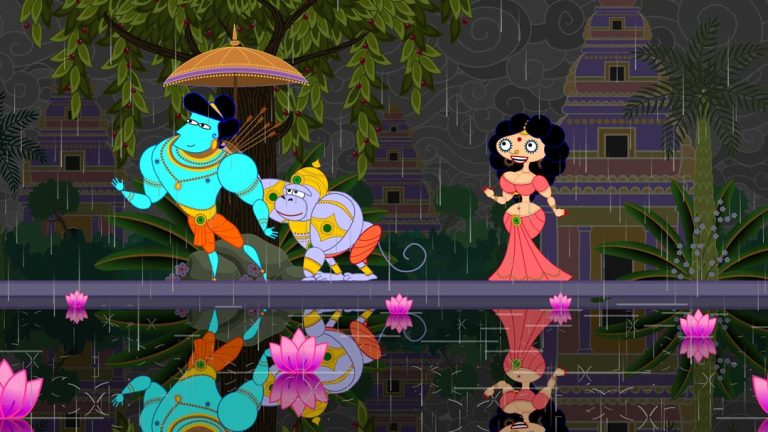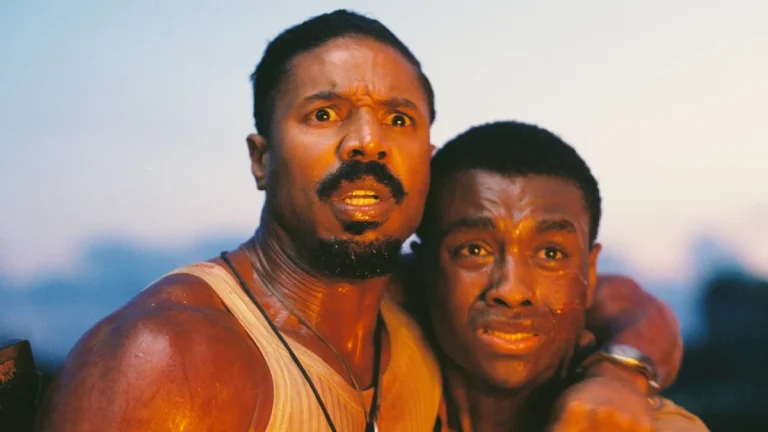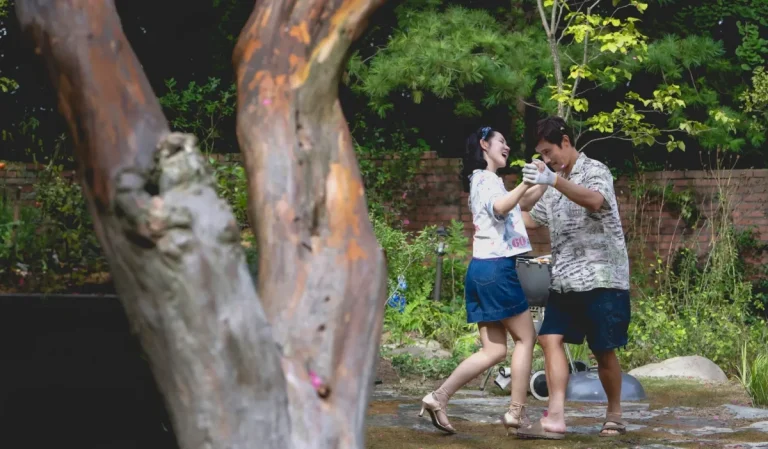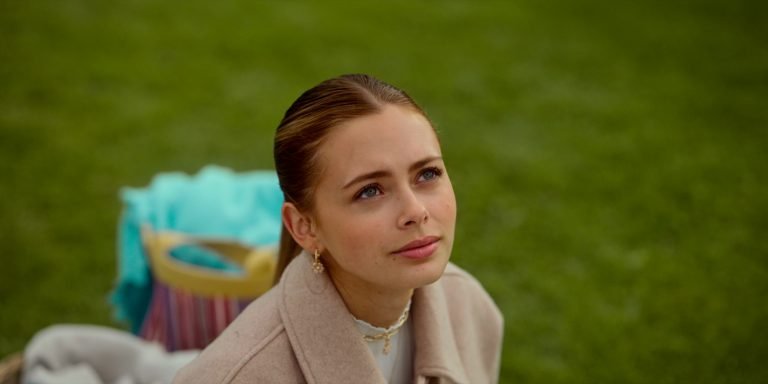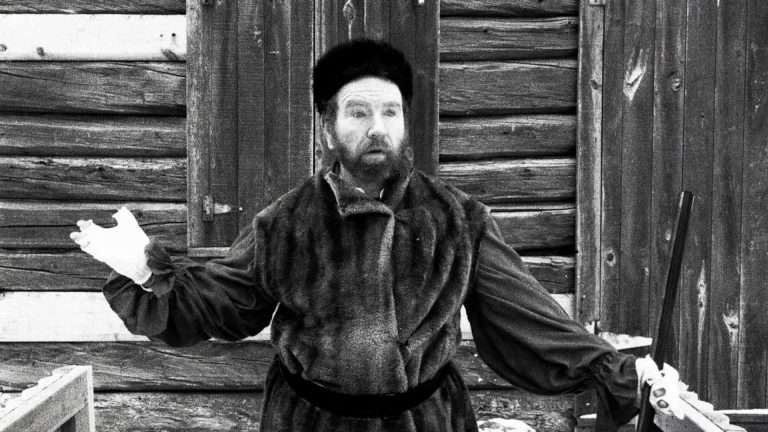“Time,” wrote James Thurber, “is for dragonflies and angels. The former live too little and the latter live too long.”
This quote, taken from “The 13 Clocks,” opens Paul Andrew Williams’ British drama, “Dragonfly” (2025), and it immediately sets the tone of a film that captures the lives of two women suspended between the living and the merely existing. Elsie (Brenda Blethyn) is an ageing widow who has lived on the same housing estate for more than fifty years.
Her world has narrowed to the dimensions of her small bungalow: fleeting visits from overworked carers, the numbing hum of daytime television, and phone calls from her work-consumed son, John (Jason Watkins), whose clipped concern barely conceals his own simmering frustrations. Though set after the pandemic, Elsie feels like a remnant of it. Williams chooses to place her in a house literally overshadowed by industrial structures; the landscape around her is also indifferent to her existence.
Her isolation is disrupted by Colleen, a younger and equally adrift neighbour, played with convincing nuance by Andrea Riseborough. What begins as a simple favour – Collen buying milk on Elsie’s behalf – gradually evolves into a tentative and at-times moving friendship carried by small gestures and shared silences. Intentionally intimate, we’re invited into the slow and quiet lives of both women, observing daily mundanity like dragonflies on the wall, not passive viewers but eavesdroppers.
In this gentleness, a hint of unease emerges. John’s passive-aggressive phone calls crackle with petulance, with Watkins indulging in the opportunity to play the archetype of a passive-aggressive son tortured by his own martyrdom. Meanwhile, Colleen’s American terrier, Sabre, roams the frame like an omen, an unpredictable and unusual third presence that mirrors the judging eyes Colleen experiences daily.
Elsie and Colleen live in near-identical houses on a uniform estate – a reminder that their story could unfold in almost any corner of the UK. Rather than labouring this point, Williams lets the setting speak for itself, using the repetitive showcase of these homes to ground the film in a recognisable reality. Early shots of solitary people on benches lend the film a documentary-like authenticity, rooting it in the gritty realism of Britain’s industrial towns.
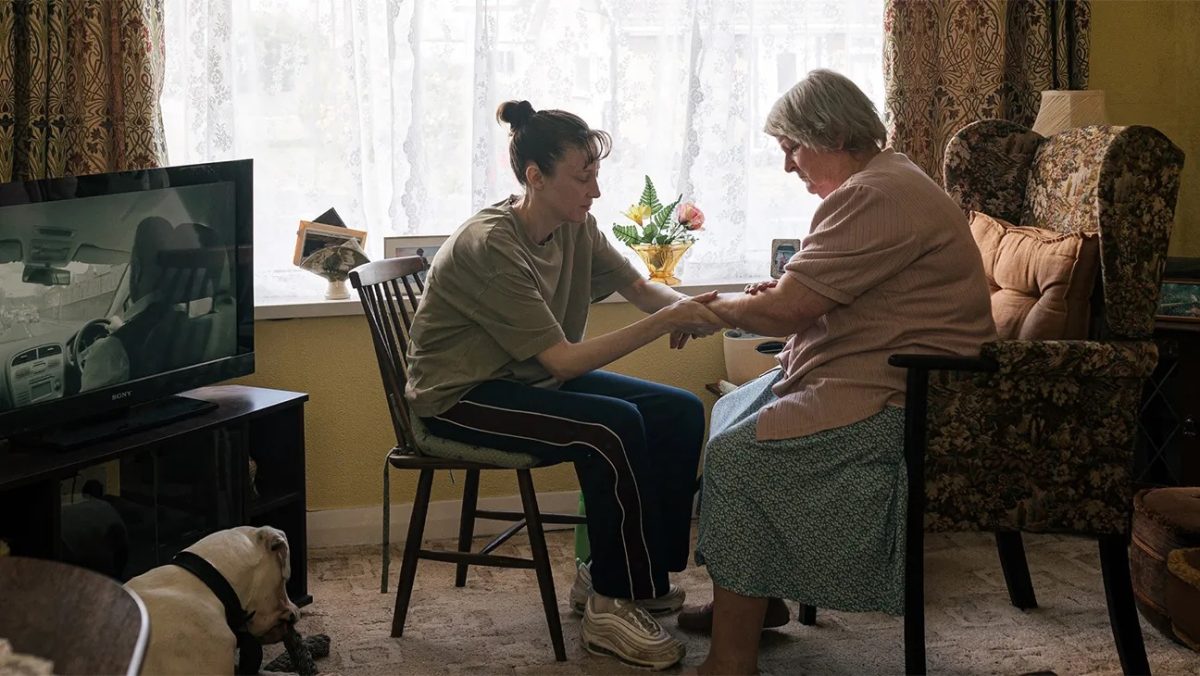
Must Check Out: 10 Greatest ‘Best International Feature Oscar’ Winners from the 21st Century
While Williams’ previous work (“Bull,” “London to Brighton”) leaned into crime and brutality, here he begins with something gentler. The naturalistic dialogue and understated humour echo Mike Leigh and Ken Loach, and what opens as a familiar study of care and dependency – calling to mind “Bleak Moments” or “Sorry We Missed You” – gradually shifts into something harsher. The tonal pivot evokes the quiet menace of Clio Barnard’s early films, where something darker is never far from the surface.
Colleen embodies a distinctly modern loneliness. She spends her nights scrolling through makeup tutorials and airbrushed adverts, the glow of her phone lighting an otherwise dark bedroom. Like her dog – a banned breed she insists is misunderstood – Colleen is judged, dismissed, and pushed to the margins. Riseborough’s performance evokes films like “Dreams of a Life” or the real-life stories of women who drift unseen through a society too distracted to notice them slipping away.
Blethyn delivers a similarly raw and vulnerable performance. Early scenes of her carers washing her or brushing her hair border on invasive, as every small wince hits with a sting of recognition. Williams understands the power of these moments, which elicit a mirrored response from the audience, forging a connection that makes the film’s later moral queasiness deeply effective. His approach relies not on plot twists but on atmosphere, tone, and the slow tightening of emotional screws.
Making smart use of domestic space, “Dragonfly” is unexpectedly engrossing, the limited setting a strength rather than a constraint. The claustrophobic camerawork pulls us into the women’s routines and hesitations, creating a closeness that feels both tender and intrusive. This sparse approach extends to the screenplay itself, which is lean and focused. With so few characters, every moment carries weight, giving the inevitable finale more power when it finally strikes.
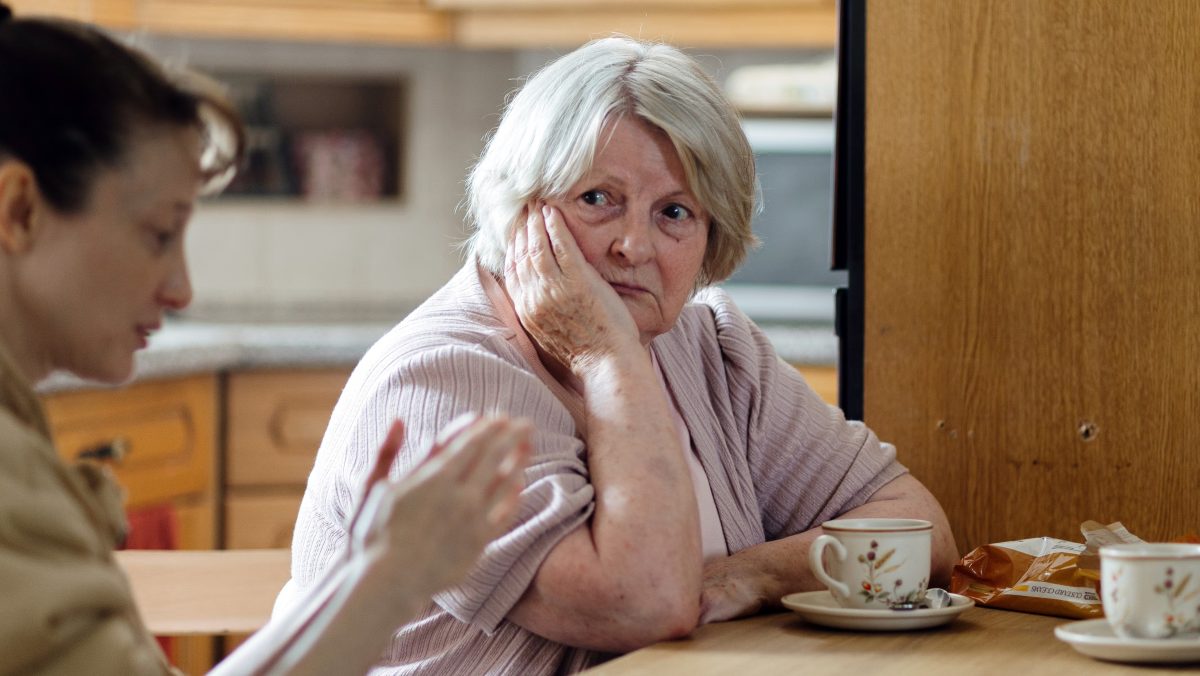
Also Read: The 10 Best Indian Movies of 2025 (So Far)
The film draws much of its power from the tension between what we see and what we suspect. Williams leans into our instinct to judge and second-guess. From the film’s opening, Raffertie’s restrained and eerie score thrums beneath the surface throughout, like a warning of things to come. We try to trust our better nature, yet the film nudges us toward doubt and forces us to question the relationship between Elsie and Colleen. The shift in tone is harsh and may be overwrought for some audiences, but there is something unexpectedly Hitchcockian in the way Williams toys with this tension and our expectations.
Through tight, intimate framing, we feel as though we are watching something private and vulnerable. Curtain-peeping becomes a recurring gesture, and the film’s claustrophobia makes us complicit in its unease. By the final act, what once felt cosy becomes claustrophobic. The camera, so tender early on, now feels intrusive, even predatory. Williams is unafraid of bluntness and uses this to his advantage here. The film’s political and moral point does not ease its way in but comes down like a blow, and although its forceful cruelty and confrontational edge may feel over-the-top or even cynical to some viewers, the film commits to that impact without apology.
“Dragonfly” offers no escape. It is purposefully manipulative and steeped in a bleakness that can wear you down. The tonal shifts are jagged and often overwhelming, and they may land differently on a repeat viewing, if anyone chooses to put themselves through it again.
On the first watch, though, the film holds you. It is gripping, sharp, and unexpectedly humane in the small spaces where it allows breath. Williams has made something that lingers precisely because it refuses resolution, holding on to its tensions instead of smoothing them out. It denies the comfort of looking away and turns the question back on the audience, asking why we are so ready to do exactly that.



![Lucy in the Sky [2019]: ‘TIFF’ Review – Never Takes Off](https://79468c92.delivery.rocketcdn.me/wp-content/uploads/2019/12/Lucy-in-the-Sky-768x512.jpg)
